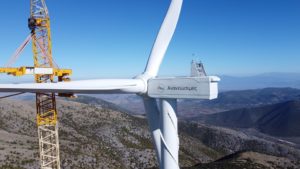Colliers: The e-commerce sales boom is slowing down, which is an important signal of a more restrained consumer in the big cities

The first semester of 2022 saw limited deliveries of new modern retail schemes, with only two projects being added totalling some 27,000 square meters, according to Colliers mid-year market report. Looking at the consumption structure, Colliers consultants note that clothing and footwear sales accelerated in the first half of 2022, with spending on various electrical and white goods also doing decently. On the other end of the spectrum, the wider category of goods for home renovations, improvements or decorations has been stabilizing for the past few quarters, probably because the residential real estate market reached a maximum level of sales. E-commerce sales have also hit their peak and are now marginally below 2021 levels. Overall, even if retail sales for some segments could stagnate or shift to a downward moving slope in the second half of the year, retailers’ profitability in Romania is one of the best in the European Union.
The only inaugurations in the first half of the year were expansion of the Colosseum Mall project (16,500 square meters) in north-west Bucharest, and the new Funshop Park Timisoara (10,800 square meters), a retail park owned by Polish developer Scallier, relatively new name on the local market. The second half of the year is going to be more active, with about 120,000 square meters of new retail schemes completed. Still, Colliers consultants do not exclude the possibility that some of these projects could be delayed until the first part of 2023, especially if the developers meet certain difficulties with the construction or leasing process.
“In terms of demand, it is important to note the strong consumer has been at the heart of the economic recovery in Romania in the post-pandemic period and, thankfully, we still see good results. This context, in turn, is the result of the very strong labor market, where the total number of employees in the economy is already above pre-pandemic levels as of early 2022. Still, while it is good that wages have accelerated in nominal terms, in real terms, they are mildly below the inflation rate as for some time. And if the economic activity is set to slow down on account developments in other countries, this will in turn lead to slower wage growth even as price dynamics remain elevated. Retail sales also could be plateauing during the second half of the year, but our base scenario for the Romania economy does not entail a hard landing, points out Simina Niculita, Partner & Head of Retail Agency at Colliers.
Otherwise, the large returns the local market offers to the retailers plus the fast recovery of retail sales, one of the fastest in the EU, has put Romania on the retail map again. After a two-year calm period in the context of the pandemic, 2022 saw a flurry of new entries on the Romanian market, with a multitude of brands either opening their first store in the first half of the year or announcing it soon, names like Primark, Bath & Body Works, Foot Locker, TEDi just to name a few.
Vacancy registered in shopping centers remains relatively subdued in most instances, in single-digit territory, with the large dominant shopping centers now rather full. On the rent front, while base rents have remained unchanged and landlords had to offer some discounts, particularly in 2020, but also in 2021, things have gradually returned to normal as well. The turnover rent, however, remains slightly below levels seen before the pandemic, up to 5% below that level, on average.
Currently, Romania has a total modern retail stock of approximately 4 million square meters, out of which over 2.7 million square meters in shopping centers and the rest mainly in retail parks. Over 60% of the total modern retail area is concentrated in the top 10 largest cities (above 200,000 inhabitants), although we expect the gap to reduce once the projects announced for the next 2 years will be delivered, most of them retail parks in the small and medium size cities.
“With more than 100,000 square meters of new retail schemes set to be delivered in the second half of the year, we also need to acknowledge the fact that some larger schemes are starting to take shape with deliveries over the medium term. And even with deliveries that could start exceeding 200,000 square meters per year of new retail projects, Romania remains a significantly undersupplied market with its over 4 million square meters of shopping centers and retail parks. And this is in comparison to CEE peers, not even Western European countries. For a similar consumption level to Czechia and Poland, Romania’s modern retail stock per capita is two times smaller than Czechia’s and more than 40% behind Poland’s”, explains Simina Niculita.














